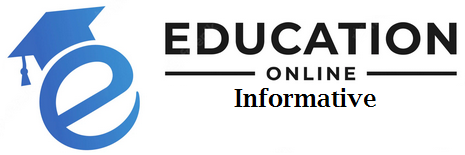One of the words to refer to the German vocabulary is “Wortschatz”, which literally means “treasure of words”. It’s beautiful, isn’t it? However, German is not an easy language to learn. No wonder college students prefer Spanish in LV2! But if you have decided to choose German, you are one of those who like to take risks and who know how to recognize the beauty and complexity of a language
Do you want to enrich your German vocabulary on a daily basis in order to get better grades and become bilingual? Here are 8 unstoppable tips. And as we say in Germany, gehen wir (let’s go) !
Tip n°1: know the specificities of the language 2. Tip n°2: look around you 3. 3rd tip: take your time 4. Tip n°4: work according to your type of memory 5. 5th tip : prepare foolproof revision materials 6. 6th tip: bet on spaced repetition 7. Tip n°7: bring new words into your daily life
Tip n°1: know the specificities of the language
German has the reputation of being a rather complicated language to learn. To tell you the truth, it is ranked 9th most complex language to learn by UNESCO. And for good reason: there are many specificities inherent in this language that will make your job a little more difficult when learning, especially when it comes to vocabulary.
– First, there are three grammatical genders: when you learn a word in German, you have to learn it with its gender: masculine, feminine or neuter.
This means that when you learn new German vocabulary, you must be able to identify and remember the gender it is associated with. This obviously doubles your workload, but it is essential in order to be able to reuse these words in a relevant way later.
– Next, let’s look at the four grammatical cases: there is the nominative (equivalent to the subject), the accusative (the equivalent of the COD), the dative (the equivalent of the COI) and the genitive (to mark the possession). In German, articles, pronouns, nouns and adjectives are declined according to the function they occupy in the sentence.
So learning new words is great, but you have to know how to use them in complete sentences to make yourself understood! Knowing how to build them correctly will therefore be very useful to you and will allow you to put your knowledge of vocabulary to good use.
Tip #2: Look Around You
The best place to learn new vocabulary words is obviously German lessons. Your teacher will give you all the basics of the language such as conjugation and grammar, but also vocabulary lists related to the subject studied. Pay close attention to your teacher’s speech and write down the words that could be very useful to you in the future. They will not only be welcome during exams, but they will also allow you to familiarize yourself with a specific concept and will push you to look further.
However, if you really want to build this famous “treasure of words”, your work must also continue in parallel with the courses. Take advantage of your solid foundations to read books in the original version (for example Le Parfum , by Patrick Süskind) and write down all the words you discover there in a small notebook. Series and documentaries can also bring you a lot of new knowledge that you can put to good use when you return to class! Make the effort to watch them in VO. You will see that your brain will adapt very quickly.
3rd advice: take your time
There’s no point in rushing because, as we said earlier, German is a complex language that can’t be learned in a few days. If you are looking to enrich your vocabulary, it is wise to go little by little and not to aim for words of more than 6 syllables at first 😉 The more accessible it is, the better!
Did you know? The longest German word recorded in the Guinness World Records has 79 letters… If you’re just starting out, save it for later!
Tip n°4: work according to your type of memory
Learning is quite tedious, you must put all the chances on your side to retain vocabulary effectively. Knowing your memory type can be a real plus in the learning process. As a reminder, here are the three types of memories on which you can base your methods:
Foolproof revision materials
File your lessons
To assimilate German vocabulary more easily, it is best to create vocabulary cards that list the words you need to learn or that you already know. The advantage is twofold:

